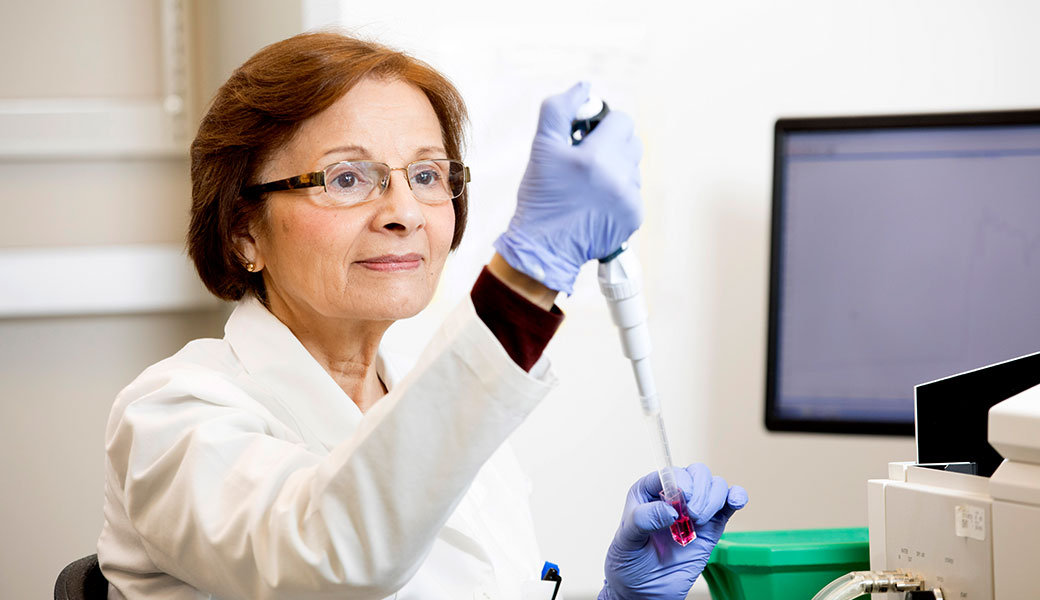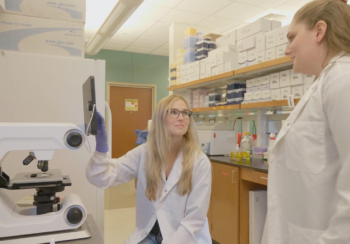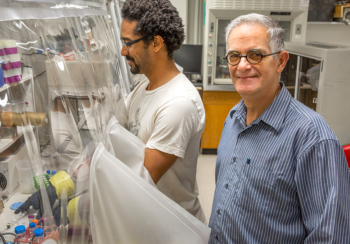UGA’s Center for Tropical and Emerging Global Diseases has been awarded $1.9 million from the National Institutes of Health to continue its pre- and post-doctoral training program for the next five years. First funded in 2004, CTEGD has received nearly $2 million from NIH to train the next generation of scientists in the fight against neglected tropical diseases. The new funding will support additional fellowships and new training initiatives.
Every year, parasitic diseases are responsible for more than a million deaths and leave hundreds of millions more with chronic infections lasting years. However, there are few U.S. programs that specifically train researchers in this field.
“This training grant represents the core of CTEGD’s effort to prepare the next generation of scientists to tackle the scourge of the neglected parasitic diseases of mankind,” said Dennis Kyle, director of CTEGD “The renewal of this award allows us to expand our efforts and is recognition of the excellence of our students, postdocs, staff and faculty.”
CTEGD is recognized as a pre-eminent research center that brings together the largest number of laboratories in the U.S. to study the full gamut of parasitic diseases, which are highly prevalent in sub-Saharan Africa, South America and Asia. Often, these diseases are the consequence and cause of poverty, and they are increasingly emerging (or re-emerging) in industrialized nations. Most have no cure and few treatment options, and growing drug resistance complicates the fight against them. Now more than ever, researchers are needed in the field of parasitology and tropical diseases in order to improve global health.
NIH recognizes the need for researchers trained in parasitology and tropical disease, as well as UGA’s and CTEGD’s ability to fill it, by providing funding for two additional pre-doctoral fellowships. CTEGD will now be able to award five pre-doctoral fellowships and two post-doctoral fellowships each year.
“This is incredibly exciting,” said Silvia Moreno, program director of CTEGD’s Training in Tropical and Emerging Global Diseases (TTEGD) and Distinguished Research Professor in cellular biology. “It’s a very competitive program, and having additional pre-doc positions funded is even more exciting. Our program offers a great environment for training in parasitology.”
UGA’s support of the program has been instrumental to its continuing funding by NIH. The state-of-the-art equipment and facilities available to trainees allow them to learn cutting-edge techniques and technologies. Under the direction of Vice President David Lee, the Office of Research has committed significant support over the next five years to fund the capstone experience, which allows each fellow to conduct research in an international setting, and two additional pre-doctoral assistantships.
“The Center for Tropical and Emerging Global Diseases is one of the key components of UGA’s strength in the wide-ranging fight against human disease,” Lee said. “The exceptional training that students and postdocs receive at CTEGD is a point of significant pride for the university, and I am committed to supporting the further growth of the Center and the TTEGD program.”

The Office of Postdoctoral Affairs will continue to partner with CTEGD to provide grant-writing workshops and career development opportunities for post-doctoral fellows. Franklin College of Arts & Sciences has also committed over the next five years to match funds from CTEGD to provide for a mini-sabbatical program for a faculty member from a local college or university, along with up to two undergraduate students from that school, to spend a semester working in a CTEGD lab. The goal is to increase awareness of post-undergraduate opportunities and spark interest in neglected tropical disease research.
To date, 37 pre- and post-doctoral fellows have received training support through the NIH T32 Training Grant. The fellowships awarded by CTEGD include a stipend, travel award, health insurance and financial support for research supplies. Pre-doctoral fellows also receive a tuition waiver. In the past 15 years, graduate students have assisted in field studies in Haiti, Tanzania, Argentina, Thailand, Ecuador and Kenya as part of their capstone experience.






